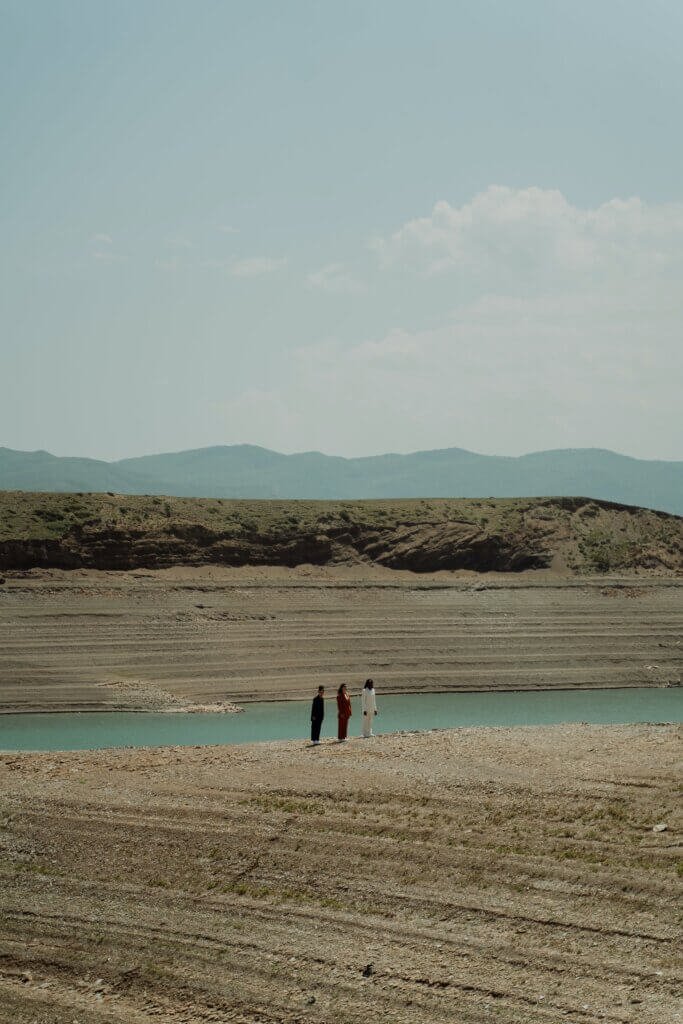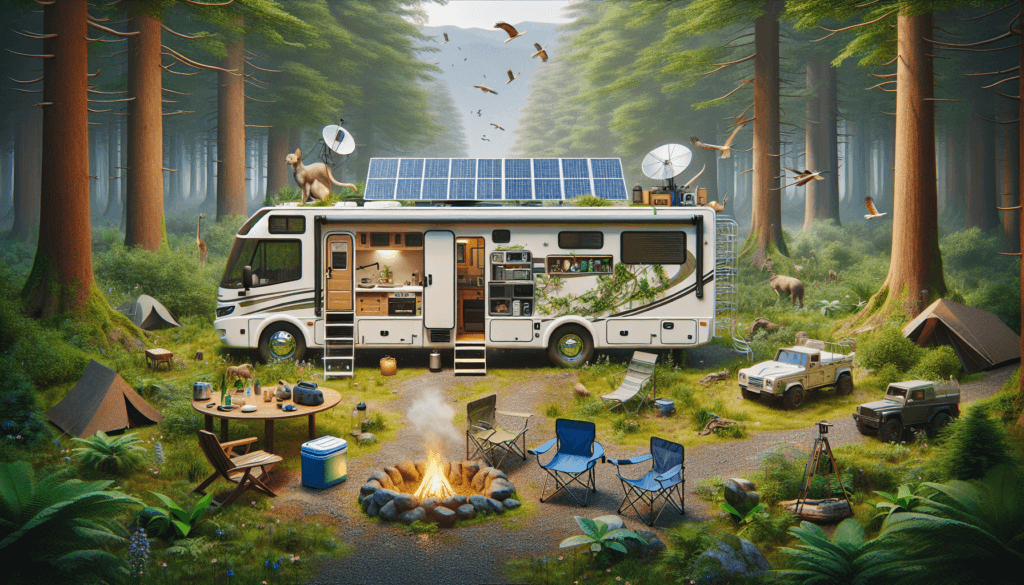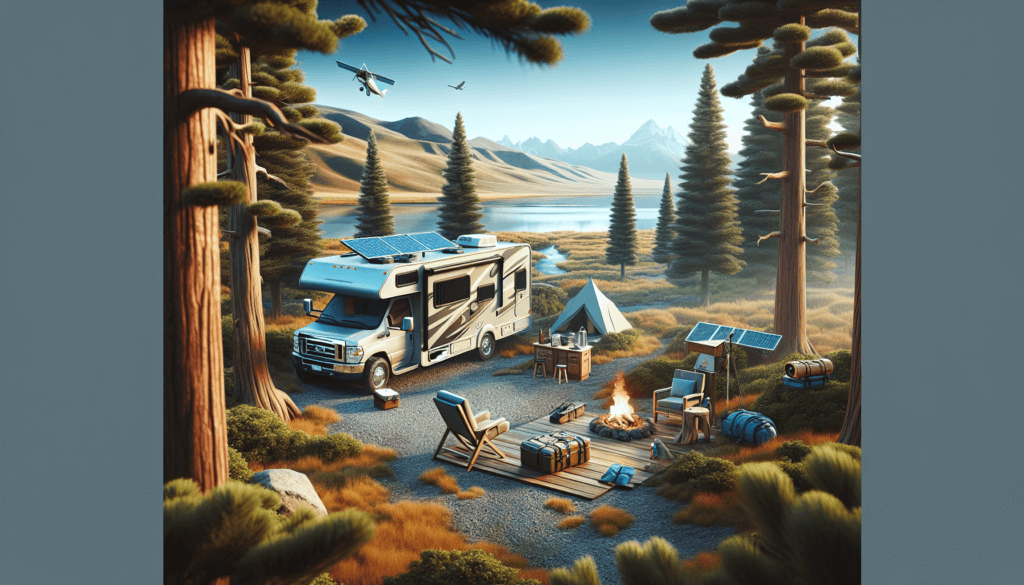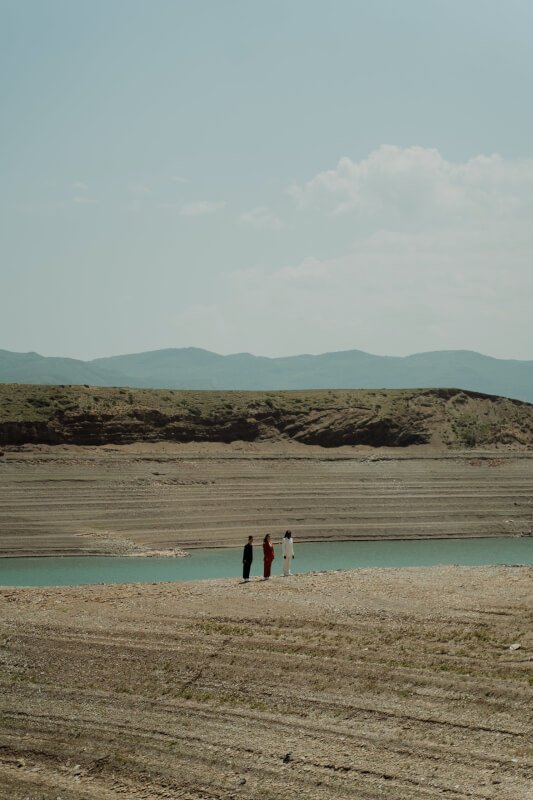Are you ready to embark on an adventure where you can escape the daily grind and embrace a more self-sufficient way of living? If so, RV camping off-grid is the perfect choice for you. In this article, we will provide you with valuable tips and insights on how to live off-grid in your RV, allowing you to disconnect from the stresses of modern life and reconnect with nature. From conserving resources to finding the ideal camping spot, we’ll guide you through the essentials of self-sufficient living, ensuring an unforgettable experience in the vast wilderness. So, pack up your RV and get ready to embark on an exciting journey towards off-grid paradise.

Choosing the Right RV
When it comes to embarking on an off-grid adventure, choosing the right RV is crucial. One of the first factors to consider is the size and weight of the vehicle. Opting for a compact and lightweight RV will provide better maneuverability on rugged terrains and make it easier to find suitable camping spots. Additionally, a smaller RV will be more fuel-efficient, enabling you to conserve resources during your journey.
Another important consideration is the RV’s solar power capabilities. Solar panels can be a game-changer for off-grid living, allowing you to harness the power of the sun to meet your energy needs. Look for RVs equipped with solar panels or those that have the option to install them. This will enable you to rely on renewable energy and reduce your dependence on non-renewable resources.
Additionally, it’s essential to consider the water and waste capacity of the RV. Off-grid camping often means limited access to water sources and proper waste disposal facilities. Therefore, choosing an RV with adequate water and waste capacities will ensure you can comfortably go without hookups for longer periods. Look for RVs with larger tanks and efficient waste management systems to make your off-grid experience hassle-free.
Solar Power and Energy Management
Investing in solar panels and batteries is a critical step towards self-sufficient living in an RV. Solar panels capture sunlight and convert it into electricity, which can then be stored in batteries for later use. By harnessing this renewable energy source, you can power your appliances and charge your devices without relying on the electrical grid. Consider installing enough solar panels and batteries to meet your energy needs during your off-grid adventures.
To effectively manage your energy consumption, it’s essential to calculate your power needs. Determine how much energy each appliance in your RV consumes and evaluate your daily usage patterns. This will help you determine how many solar panels and batteries you need to fulfill your energy requirements. By being mindful of your power usage, you can ensure that you don’t overwhelm your solar power system and have sufficient energy for all your needs.
In addition to solar power, using energy-efficient appliances and lighting can significantly reduce your energy consumption. Opt for appliances with high energy efficiency ratings and use LED lighting, which consumes less power compared to traditional incandescent bulbs. This simple switch can make a significant impact on your overall energy usage and help you maximize the efficiency of your solar power system.
Monitoring and managing your energy usage is crucial for off-grid living. Consider using energy monitoring devices that provide real-time data on your energy consumption. This will allow you to identify any areas of excessive usage and make adjustments accordingly. By actively managing your energy usage, you can ensure that you make the most of your solar power system and enjoy a sustainable off-grid lifestyle.
Water Management
Conserving water is essential when living off-grid in an RV. With limited access to water sources, efficient usage becomes paramount. By adopting water conservation practices, you can prolong your water supply and minimize waste. Be conscious of your water usage habits, such as taking shorter showers, turning off taps when not in use, and fixing any leaks promptly. These small changes can make a significant difference in your water consumption.
Consider installing a water filtration system in your RV. This will allow you to purify water from natural sources such as rivers and lakes, making it safe for drinking and cooking. A high-quality filtration system will ensure that you have access to clean water wherever your off-grid adventures take you. Additionally, using filtered water for tasks such as dishwashing can help preserve the quality of your RV’s plumbing system.
In an effort to conserve water, it’s also important to reuse and recycle water whenever possible. For example, after washing dishes, collect the soapy water and repurpose it for flushing the toilet. This can greatly reduce your water consumption and help you make the most of your limited resources. Additionally, consider using biodegradable soaps and shampoos to minimize the impact on the environment when reusing water.
Waste Management
Proper waste management is crucial for preserving the environment and maintaining the sustainability of your off-grid lifestyle. Learn about the appropriate waste disposal methods in the areas you’ll be traveling to. Some campgrounds may have specific guidelines for waste disposal, such as designated dump stations for RV waste. Familiarize yourself with these regulations to ensure you dispose of waste responsibly and minimize your impact on nature.
Consider using composting toilets in your RV. These toilets break down waste into compost, which can later be used as fertilizer. Composting toilets are an eco-friendly alternative to traditional sewage systems, as they reduce water usage and minimize the need for chemical treatments. By installing a composting toilet in your RV, you’ll be taking a significant step towards sustainable waste management while enjoying the freedom of off-grid living.
Dispose of gray water responsibly. Gray water refers to wastewater generated from showers, sinks, and washing machines. When off-grid camping, it’s important to be mindful of where you discharge gray water. Avoid dumping it directly onto the ground or into natural water sources, as this can harm the environment. Instead, use designated dump stations or follow specific campground guidelines for gray water disposal.

Food and Supplies Storage
Optimizing your RV’s storage space is essential for a comfortable off-grid experience. Make use of every nook and cranny by utilizing storage solutions such as collapsible containers and organizers. Pack your belongings strategically, placing frequently used items within easy reach and stowing away less frequently used items to maximize space efficiency.
When storing food, use airtight containers to help prolong its shelf life and prevent spoilage. Airtight containers protect food from moisture, pests, and odors, ensuring that your provisions remain fresh and safe to consume. Consider investing in stackable containers that can be easily stored in the refrigerator or pantry, further optimizing your storage space.
Consider using a refrigerator or cooler with energy-saving features. Look for models with adjustable temperature controls and insulation that keeps food cold for longer periods. Energy-efficient refrigerators and coolers can help reduce your energy consumption and increase the efficiency of your solar power system. When shopping for appliances, prioritize those with high energy efficiency ratings to make the most of your off-grid living experience.
To minimize reliance on perishable food items, stock up on long-lasting and non-perishable food. Items such as canned goods, dried fruits, nuts, and grains have longer shelf lives and require no refrigeration. Having a well-stocked pantry of non-perishable items ensures you have enough food during your off-grid adventures, even when access to fresh groceries is limited.
Water and Food Sources
Planning your routes with access to water sources in mind is crucial for a successful off-grid camping experience. Research and identify campgrounds or areas that provide access to freshwater for refilling your tanks. This will ensure that you have a steady supply of drinking and cooking water throughout your journey. Additionally, consider carrying extra containers to store water, providing you with a backup supply in case of emergencies.
Carrying enough drinking water is essential when off-grid camping. The amount of water you’ll need depends on factors such as the duration of your trip, the number of people in your RV, and the availability of fresh water sources. Plan and pack accordingly, ensuring that you have an ample supply of drinking water to keep everyone hydrated and healthy.
Research local markets and supermarkets in the areas you’ll be traveling to. Knowing where to find groceries and supplies can be invaluable when you need to replenish your pantry. Take note of operating hours and stock up on essentials when you have the opportunity. This will help you better manage your food and supply inventory and avoid running low on crucial items during your off-grid adventure.
For those seeking a more self-sustaining approach, consider fishing or hunting for food. Research the local regulations and licenses required, and make sure you have the appropriate gear. Fishing and hunting can not only provide you with fresh, nutritious food but also be a rewarding and immersive experience in the great outdoors.

Navigating the Terrain
When venturing off-grid, it’s important to be prepared with the necessary off-road equipment for any challenging terrain you may encounter. Carry essential items such as tire repair kits, air compressors, traction mats, and a sturdy jack. These tools will come in handy in case of emergencies or when navigating rough roads. Additionally, consider investing in a high-quality GPS device specifically designed for off-road travel to help you navigate with confidence.
Checking weather and road conditions beforehand is essential for a safe and enjoyable off-grid experience. Stay updated on weather forecasts, road closures, and any potential hazards. Unpredictable weather can impact the condition of dirt roads and camping areas, so it’s important to plan and adapt accordingly. By staying informed, you can avoid unnecessary risks and ensure a smooth journey.
Staying on designated RV camping areas helps preserve the environment and protects natural habitats. Many off-grid campsites offer specific areas for RV camping, ensuring that you can enjoy the solitude of nature while minimizing your impact on the surroundings. Respect any guidelines or restrictions in place and avoid camping in sensitive or protected areas. This way, you can enjoy your off-grid adventure responsibly and in harmony with the environment.
Consider using GPS systems specifically designed for off-grid travel. These devices offer features such as topographic maps, trailheads, and waypoints, making navigation in remote areas easier and safer. With real-time tracking and detailed mapping capabilities, off-road GPS systems provide peace of mind and allow you to explore off-the-beaten-path destinations with confidence.
Emergency Preparedness
Being prepared for emergencies is essential when embarking on off-grid adventures. Carrying a well-stocked first aid kit is crucial for addressing minor injuries and medical needs. Make sure your first aid kit includes essentials such as bandages, antiseptics, pain relievers, and any necessary prescription medications. Regularly check and replenish your first aid supplies to ensure they are up to date and ready for use.
Having emergency communication devices can be a lifeline in remote areas. Consider investing in a satellite phone or a two-way radio to stay connected and call for help if needed. These devices can provide a vital link to emergency services or fellow travelers, ensuring that assistance is within reach even in the most isolated locations.
Learn basic survival skills before embarking on your off-grid journey. Familiarize yourself with techniques such as starting a fire, building a shelter, and navigating without modern tools. Developing these skills can be invaluable in emergency situations and enhance your self-sufficiency in the wilderness. Take the time to practice these skills in a controlled environment to build confidence and increase your readiness for any unforeseen circumstances.
Before setting off, research and make note of nearby medical facilities and emergency services. Know the locations of hospitals, clinics, and rescue services along your route. In case of a medical emergency, having this knowledge readily available can help you act quickly and efficiently. Remember to also have important contact numbers saved in your phone, including emergency services and the contact information of someone who can assist you in case of an emergency.

Connectivity and Communication
Maintaining connectivity and communication while off-grid can enhance your overall RV camping experience. Research and choose reliable cellular providers that offer coverage in the areas you’ll be visiting. Consider investing in a cell signal booster to improve reception in remote locations. Signal boosters amplify weak signals and can significantly enhance your ability to stay connected, even when surrounded by nature’s beauty.
RV-friendly apps can be valuable tools for navigation and communication. Look for apps that offer offline maps, campground reviews, and campground reservation services. These apps can help you find suitable camping spots, plan your routes, and discover hidden gems along the way. Additionally, consider using communication apps to stay connected with fellow RV campers, join online communities, and share experiences and valuable tips.
Stay connected with fellow RV campers through online communities. Joining forums, social media groups, and online platforms dedicated to RV camping can provide a wealth of knowledge and support. Share your experiences, learn from others, and foster connections with like-minded individuals who are passionate about off-grid living. These communities can be a valuable resource for advice, recommendations, and camaraderie during your off-grid adventures.
Enjoying the Off-Grid Experience
The beauty of off-grid camping lies in embracing the peace and solitude of nature. Take the time to disconnect from technology and immerse yourself in the natural surroundings. Enjoy the quiet serenity, the sounds of birds chirping, and the breathtaking landscapes. Embracing the off-grid experience allows you to reconnect with nature and appreciate the simple pleasures that the wilderness offers.
Engaging in outdoor activities is a wonderful way to fully experience off-grid camping. Hiking through scenic trails, kayaking in crystal-clear lakes, or simply enjoying a picnic under the shade of towering trees are all activities that can help you connect with nature on a deeper level. Take the time to explore your surroundings and engage in activities that bring you joy and tranquility.
Disconnecting from technology is an essential part of the off-grid experience. Use this opportunity to put away your devices and immerse yourself in the present moment. Take in the sights, sounds, and smells of nature without the distractions of phones and screens. By disconnecting and being fully present in your surroundings, you can truly appreciate the beauty and wonder of off-grid living.
Creating a comfortable and cozy living space in your RV is key to enjoying your off-grid experience to the fullest. Customize your RV to meet your needs and preferences, making it feel like a home away from home. Add comfortable bedding, cushions, and curtains for privacy. Personalize the space with decorations and items that bring you joy. Creating a cozy and inviting living space will enhance your overall off-grid camping experience and make it even more enjoyable.
In conclusion, embarking on an off-grid adventure in an RV requires careful planning and consideration. Choosing the right RV, harnessing solar power, managing water and waste, optimizing storage, locating water and food sources, navigating the terrain, being prepared for emergencies, maintaining connectivity, and enjoying the off-grid experience are all vital aspects of self-sufficient living in an RV. By following these tips and adopting a sustainable approach, you can embark on a fulfilling off-grid journey, reconnect with nature, and create lasting memories along the way. Happy off-grid camping!



